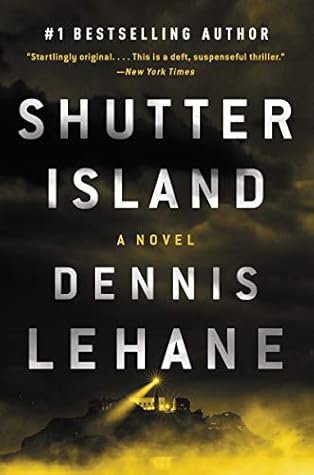More on this book
Community
Kindle Notes & Highlights
He felt a sudden pity for all those people on the other side of the wall who recognized that thin wire for what it was, realized just how badly the world wanted to keep them in.
“Now we treat them. Morally. We try to heal, to cure. And if that fails, we at least provide them with a measure of calm in their lives.”
The idea is to obfuscate. Confuse the listener until they believe out of exhaustion more than any sense of truth.
We were supposed to grow old together, Dolores. Have kids. Take walks under old trees. I wanted to watch the lines etch themselves into your flesh and know when each and every one of them appeared. Die together.
I held her, he wanted to say, and if I knew for certain that all it would take to hold her again would be to die, then I couldn’t raise the gun to my head fast enough.
“Believe it or not, Marshal, I believe in talk therapy, basic interpersonal skills. I have this radical idea that if you treat a patient with respect and listen to what he’s trying to tell you, you just might reach him.”
It was a relief to laugh after Peter Breene, and Teddy wondered if he was actually flirting a bit too. With a mental patient. An ax murderer. This is what it’s come to, Dolores.
“Die for her,” Chuck said. “No regrets about it, either.” Teddy nodded. No purer feeling in the world that he knew of.
Christ, how Teddy envied Chuck. His ability to believe in the words he spoke.
Charm was the luxury of those who still believed in the essential rightness of things. In purity and picket fences.
What was the point of buying groceries, of filling the Chrysler tank, of shaving, putting on socks, standing in yet another line, picking a tie, ironing a shirt, washing his face, combing his hair, cashing a check, renewing his license, reading the paper, taking a piss, eating—alone, always alone—going to a movie, buying a record, paying bills, shaving again, washing again, sleeping again, waking up again… …if none of it brought him closer to her?
one day she’d be less a person who had lived and more the dream of one.
he knew this was, outside of love, the greatest feeling in the world. To have escaped.
he felt so small, so utterly human, but it wasn’t a debilitating feeling. It was an oddly proud one. To be a part of this. A speck, yes. But part of it, one with it. Breathing.
she was gone. Gone as he climbed under the moon. But he could hear her. Even as he couldn’t picture her, he could hear her in his brain and she was saying, Go on, Teddy. Go on. You can live again.
“God gives us earthquakes, hurricanes, tornadoes. He gives us mountains that spew fire onto our heads. Oceans that swallow ships. He gives us nature, and nature is a smiling killer. He gives us disease so that in our death we believe He gave us orifices only so that we could feel our life bleed out of them. He gave us lust and fury and greed and our filthy hearts. So that we could wage violence in His honor. There is no moral order as pure as this storm we’ve just seen. There is no moral order at all. There is only this—can my violence conquer yours?”
He nodded. “Here. You’ve been here for two years. A patient of this institution.”
“Your name is Andrew Laeddis,” Cawley said. “The sixty-seventh patient at Ashecliffe Hospital? He’s you, Andrew.”
“Men who believe that the way to the mind is not by way of ice picks through the brain or large dosages of dangerous medicine but through an honest reckoning of the self.”
HE WOULD SAY to her: “What’s wrong? What don’t I do? What don’t I give you? How can I make you happy?”
She was afraid of all that and so much more, but what terrified her most was inside of her, an insect of unnatural intelligence who’d been living in her brain her entire life, playing with it, clicking across it, wrenching loose its cables on a whim.
She had been what carried him through the war, through this awful world. He loved her more than his life, more than his soul. But he’d failed her.
he’d refused to see Dolores, really see her, see that her insanity was not her fault, not something she could control, not some proof of moral weakness or lack of fortitude. He’d refused to see it because if she actually were his true love, his immortal other self, then what did that say about his brain, his sanity, his moral weakness?


